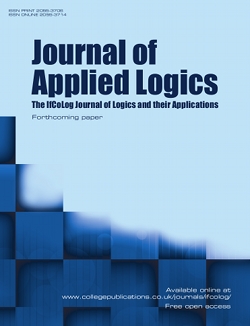 | Estimating the Strength of Defeasible Arguments
A Formal Inquiry
James B. Freeman
We propose that strength for defeasible arguments be understood as resistance to rebuttals: the greater the resistance, the stronger the argument. We may explicate this characterization through L. J. Cohen's method of relevant variables. A relevant variable is a condition which may hold in different ways in different situations and may hold more or less, and not just all or none. In some cases, if a variable holds in some way or to some extent, some universal generalization, most simply of the form that all $P$s are $Q$s, may be counter-exampled. Likewise the corresponding warrant from $Px$ to infer $Qx$ will be rebutted by this condition. The more such variants of such variables do not produce counterexamples or rebuttals, the stronger the generalization and its associated warrant and the stronger the argument. A canonical test systematically exposes a generalization to progressively greater combinations of relevant variables. The more levels passed without counterexample, the stronger the generalization. Our strategy for explicating argument strength requires defining the concept of a relevant variable and indicating a canonical way to order relevant variables in constructing a canonical test. After explicating Cohen's concept, we develop how relevant variables may be ordered through appealing to the concept of plausibility and Rescher's account of plausibility indexing.
|

